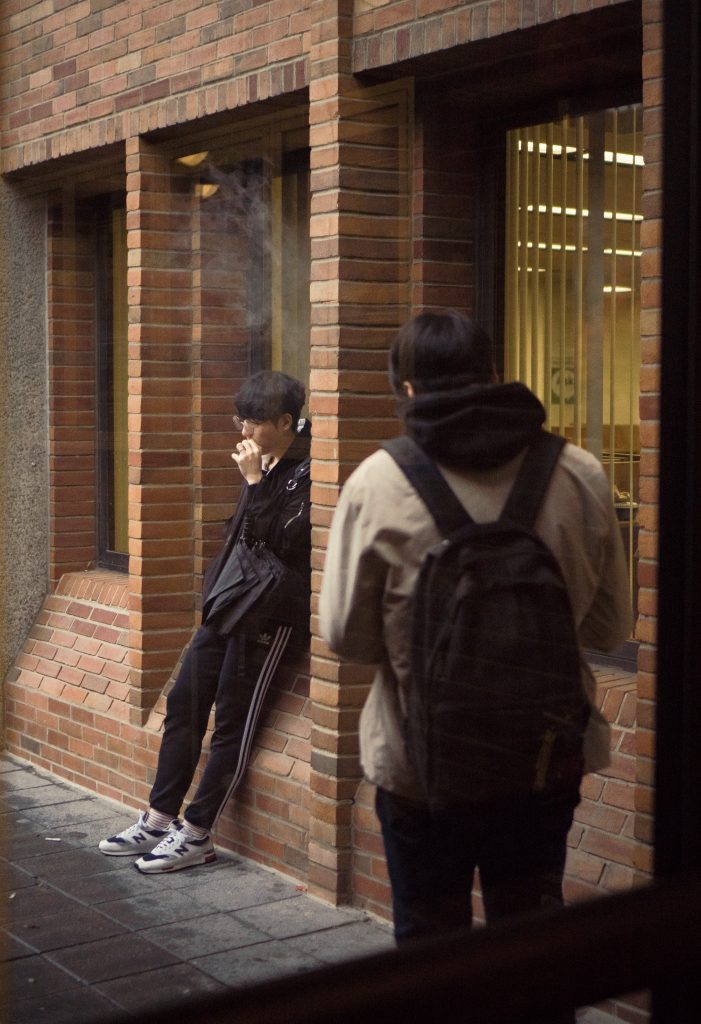Depending on the results of a new survey designed to evaluate campus feedback to the Binghamton University’s Tobacco-Free Campus Initiative, the current policy may be going up in smoke.
The survey, which was released on Wednesday, includes questions designed to gauge students’ and faculty’s reaction to the current policy, which mandates a completely tobacco-free campus. According to the University’s website, this means that no tobacco use is allowed on any BU-owned, operated or leased property. In this case, “tobacco” encompasses cigarettes and electronic nicotine delivery systems, including electronic cigarettes and a variety of other products.
The policy aims to promote a healthy and productive environment for all, according to the University’s website.
“One of Binghamton University’s goals is to be a healthy campus that fosters health [and] wellness, safety and sustainability, thereby providing a productive environment for all students, faculty, staff, vendors, volunteers and visitors,” the website reads. “Tobacco use negatively affects the entire community and runs counter to Binghamton University’s goal.”
In order to enforce the policy, individuals are encouraged to spread awareness of the policy to others, should they notice tobacco use on campus. Enforcement and disciplinary action depends on the cooperation of those involved and the severity of the situation, however, no enforcement of the policy is conducted by Binghamton’s New York State University Police Department (UPD), as the rule does not constitute a legal matter.
The current policy was made effective on Aug. 1, 2017. At the time, it was planned that a survey would be released two years later to the campus community as an evaluation of the initiative, according to Johann Fiore-Conte, co-chair of the Tobacco-Free Campus Initiative and assistant vice president for health and wellness at BU.
“The survey is part of the evaluation strategy for the Tobacco Free Campus Initiative,” Fiore-Conte wrote in an email. ”Results will provide feedback on the impact of the initiative and inform our outreach, programming and support efforts as we move forward.”
Nora Wilke, a senior majoring in biomedical engineering, said she has noticed less public smoking since the policy was enacted.
“There are still people who smoke on campus near the library, but the number has decreased since the policy took effect,” Wilke said. “[However], I have never seen anyone who was smoking be told to stop.”
Other students, like Alyssa Felberbaum, a junior double-majoring in biology and anthropology, do not think the current policy works, particularly because of the lack of enforcement.
“People Juul and smoke whenever they want to — no one really enforces it, especially at night,” Felberbaum said. “But, I think as long as there’s no smoking in public areas like the Spine and other places where secondhand smoke could be a factor, it’s fine.”
Several students said they would be interested in taking the survey to evaluate the current tobacco policy, including Jake Schweitzer, a junior majoring in biology.
“I would take the survey if it is online, as it is convenient to do so,” Schweitzer said. “[Smoking] is a critical issue today, especially in the health field.”
Still, Felberbaum said she does not think changes to the policy would have a major effect, regardless of potential consequences.
“I think students are going to do whatever they want and there isn’t much the school can do,” she said. “The school could try fining people, but I don’t think there is a point.”



